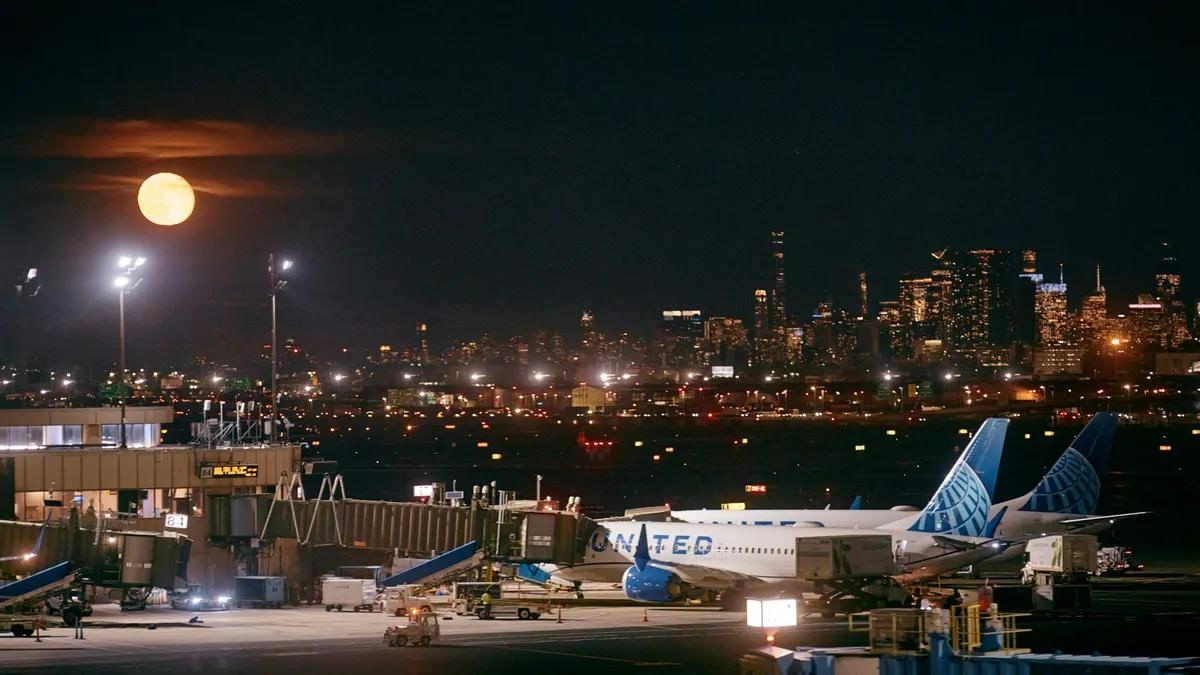AeroGenie — Your Intelligent Copilot.
Trending
Categories
How Air Traffic Reductions Could Affect Holiday Deliveries

How Air Traffic Reductions Could Affect Holiday Deliveries
The Federal Aviation Administration’s (FAA) recent directive to reduce flight capacity by 10% at 40 major U.S. airports has raised concerns about potential disruptions to holiday deliveries. This decision, driven by shortages of air traffic controllers amid the ongoing government shutdown, has already led to over 3,500 flight delays and more than 950 cancellations. As the peak holiday shipping season approaches, experts warn that these reductions may place additional strain on the supply chain and slow the delivery of essential goods.
Flight Reductions and Their Impact
The FAA’s order aims to alleviate the workload on unpaid air traffic controllers during the shutdown by requiring air carriers at affected airports to reduce their total daily scheduled domestic flights between 6 a.m. and 10 p.m. local time by 10%. Although the directive does not explicitly target cargo flights, air freight is frequently transported not only on dedicated cargo planes but also in the cargo holds of passenger aircraft. Major logistics companies such as FedEx and UPS operate significant hubs at several impacted airports, including Indianapolis, Memphis, and Louisville.
Both FedEx and UPS have emphasized that many of their flights occur during nighttime hours, outside the restricted window, and that contingency plans are in place to prioritize shipments of critical items such as pharmaceuticals, medical devices, and manufacturing components. Nevertheless, the reduction in available flights could still slow package movement, particularly as demand surges during the holiday season.
Grounding of MD-11 Cargo Planes
The situation is further complicated by the recent grounding of McDonnell Douglas MD-11 cargo planes by both UPS and FedEx, following a major air crash in Kentucky last week. These aircraft represent approximately 9% of the UPS fleet and 4% of FedEx’s, with each plane capable of carrying thousands of packages. The duration of this grounding remains uncertain, and logistics experts warn that extended downtime could exacerbate shipment delays.
Supply Chain Adjustments
While most air shipping is international and has so far remained unaffected by the FAA’s domestic flight reductions, the combination of fewer domestic flights and the MD-11 grounding is prompting logistics companies to adjust their operations. Airlines account for about 35% of global trade by value but only around 1% by volume, according to the International Air Transport Association. In response, firms such as C.H. Robinson are increasing reliance on ground transportation to maintain the flow of goods within the United States.
Implications for Holiday Deliveries
The FAA’s measures are intended to ensure safety in the nation’s airspace but carry the risk of disrupting the timely delivery of vital goods, including harvested organs, pharmaceuticals, factory parts, and holiday gifts. Most experts believe the impact will remain manageable unless flight reductions deepen or the MD-11 grounding is prolonged. Nonetheless, consumers and businesses may still face some delays.
For the time being, contingency plans and a greater dependence on trucking are expected to mitigate the most severe effects. However, the situation remains fluid, and further disruptions could occur if the government shutdown persists or if additional flight restrictions are imposed.

Emirates Unveils Cabin Design for New Boeing 777X

Eighteen Years On, the Airbus A380 Remains Central to a $34 Billion Airline

How a boom in luxury airline seats is slowing down jet deliveries

Navitaire Outage Attributed to Planned Maintenance

DigiYatra Debuts Outside Aviation at India AI Impact Summit

Vietnam Orders Strengthen Boeing’s Commercial Outlook

Airbus Signals Uncertainty Over Future A400M Orders

JobsOhio Awards $2 Million Grant to Hartzell Propeller for Innovation Center

Collins Aerospace Tests Sidekick Autonomy Software on YFQ-42A for U.S. Air Force CCA Program

How the Airbus A350-1000 Compares to the Boeing 777
